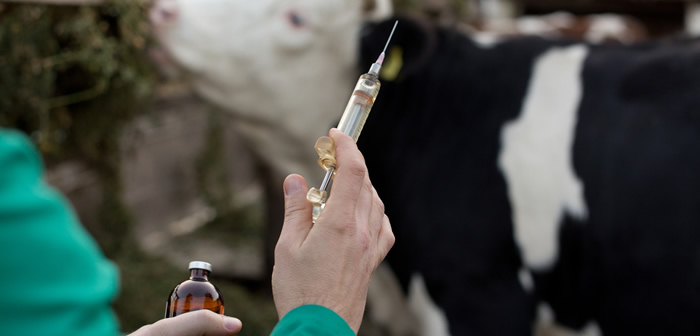The British public are becoming better informed when it comes to understanding the vital role veterinary medicines play in supporting the health and welfare of our farm animals and pets.
This is one of the findings from the first-ever survey of European public knowledge and attitudes to animal medicines commissioned by NOAH’s European Federation IFAH-Europe. 6000 on-line interviews were carried out, spread across the UK, Denmark, Germany, the Netherlands, Poland and Spain. The study shows the knowledge and attitude of UK citizens, compared to the average of these countries as a whole.
Whilst in general UK citizens are more aware than their European counterparts, there is still room for improvement. Our sector must continue to improve our communications on key areas such as antibiotic resistance, food security and diseases that can pass from animals to people, as many misunderstandings still exist.
“In general we in Britain are quite well informed about the benefits of animal medicines,” said Dawn Howard, chief executive of NOAH. “NOAH has commissioned similar research in the UK before, and we have been addressing misunderstandings, explaining why and how animal medicines are used to support both animal and public health. Many people understand that medicines help support the health and welfare of animals, especially their pets. Yet overall almost 40% of people across Europe still do not realise animal medicines have a positive impact on farm animal health.
“Nevertheless, looking to the future, the good news is that new technologies are being embraced across Europe, with very little difference in the views between different countries. Our industry supports innovation, whether it means a new vaccine against an emerging disease, improved diagnostics, or a medicine in a formulation that is easier to give.
“There is a certain level of trust in the authorities that control how animal medicines are authorised and controlled too. In Britain, more than half those surveyed are aware that the use of antibiotics in farm animals is regulated and controlled by the national authorities, and 61% are aware that animal medicines are tested and reviewed before they are allowed to be sold ,” said Mrs Howard.
“But within our industry, we can all help by doing more to promote understanding of the stringent controls that govern our sector and help address any misunderstandings that still exist.”
The British results show 74% of people know that farm animals are vaccinated to prevent sickness (71% overall in the EU). There’s a bigger difference when respondents were asked whether farm animals are given medicines to treat them when they are sick, with 75% of the British respondents confirming they were aware that their welfare was protected in this way and only 66% of the EU audience coming to the same conclusion.
Looking at awareness of farm animals given medicines to prevent internal parasites such as worms, 70% of Brits said they were aware of this, with just 17% saying they were not. Our continental counterparts, on the other hand, were not so sure, with only 62% saying they were aware this is done, and 22% saying they were not. There was an even bigger awareness gap when respondents were asked about farm animals that are given medicines to prevent external parasites – with 62% of the British audience aware of this practice as opposed to just 52% of the overall European audience. However, there is a desire to know more: across Europe two thirds of citizens said they did not feel sufficiently aware.
When questioned about the concerns people have about the use of medicines, most centred around potential consequences from medicine residues which could pass into food or drinking water, antibiotic-resistant bacteria from animals being passed to people, or harmful substances being in food which are not declared on the packaging. Reassuringly, the reality in the UK is that residue controls and monitoring are in place and working well to ensure consumers are protected.
Dawn Howard commented: “With global concern about antibiotic resistance, it is perhaps not surprising to see this raised among the public. But even so, the science is very clear – the use of antibiotics in people is the main driver of resistance developing in the human population, not the use in British livestock. Looking at the use of antibiotics in farm animals, it was clear that many people are uncertain and have a lack of accurate information regarding their use. People believe that alternatives – for example, better hygiene management, and regular vaccinations, can reduce the use of antibiotics. However, 55% of British people don’t know that farmers implement alternative measures to reduce antibiotic use.
“The good news is the survey showed that the British believe that our farmers care for animal health and welfare (70%), and that our vets adhere to high professional standards, with more than 61% in Britain supporting that view,” said Dawn. “Working together, we should not be afraid to explain how our animals are kept healthy and to promote the initiatives that support disease prevention and responsible animal medicine use.”


